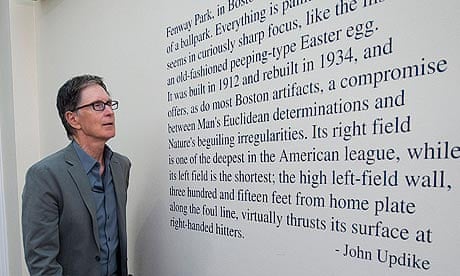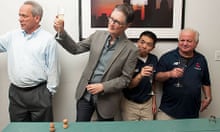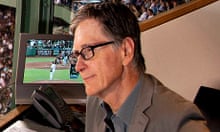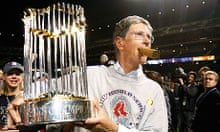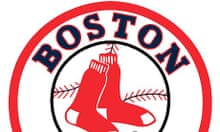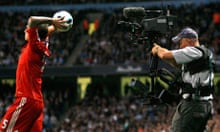John W Henry, the principal owner of Liverpool, has suggested his Fenway Sports Group has overpaid for players, particularly in Boston and also in Liverpool, since they bought the football club a year ago this Saturday. Kenny Dalglish, appointed Liverpool's manager in January – which Henry described as "a calculated gamble" because he was not initially convinced Dalglish should return to management after an 11-year absence – has since spent £110.5m on players.
Liverpool's outlay includes £35m on Andy Carroll, £20m each for Jordan Henderson and Stewart Downing, as well as £22m for Luis Suárez and £6m for José Enrique, the latter two generally felt in football to represent fair value. The Boston Red Sox, the baseball team Fenway owns, took on $300m (£191m) in new payroll commitments on two players, Carl Crawford and Adrian Gonzalez, before this season, which nevertheless ended in dramatic collapse for the Red Sox.
Asked whether Liverpool achieved value in the transfer market or overpaid for Carroll and the other players signed at Liverpool, Henry suggested they felt they needed to show fans of both clubs they were prepared to make signings for big money: "There was a lot of criticism in Boston that we weren't going to spend money on the Red Sox after we did the LFC transaction. We spent something like $300m in the off-season in Boston, and then there was the fear we wouldn't spend in Liverpool.
"It is really surprising, ironic, to be now accused of overspending. Usually owners are accused of the opposite. Hopefully the fans of both clubs will eventually see what we see clearly – that there is nothing to fear from the existence of the other club and that Fenway Sports Group is much stronger financially because of Boston and Liverpool."
Asked if the signing of Crawford, the left-arm outfielder contracted for $140m in wages over seven years, whose performances were disappointing this season, represented overspending, Henry defended the 30-year-old, saying the player had only "had a bad year". Then he acknowledged: "Choosing players in any sport is an imperfect science. We certainly have been guilty of overspending on some players, and that can be tied to an analytical approach that hasn't worked well enough."
Henry, Fenway and the Red Sox general manager, Theo Epstein, reportedly about to leave for the Chicago Cubs, have previously been famed for using sabermetrics, a data-driven assessment of which players represent good value to buy, to which Damien Comolli, whom they appointed Liverpool's director of football, is said to subscribe. Comolli was hired following a recommendation by Billy Beane, the former general manager of the Oakland Athletics baseball team, who Henry said was his "initial adviser on the football side of Liverpool".
However, Henry said people have now become fixated on sabermetrics because of Moneyball, the book on baseball statistics by Michael Lewis, and said "football is too dynamic" to base recruitment largely on a statistical approach. Liverpool's signings, he explained, ultimately relied on scouting, not purely statistics. Comolli, he said, impressed with the all-round rigour of his approach rather than purely a reliance on data.
Henry, discussing Dalglish's appointment during three days of exclusive access granted to the Guardian in Boston, said he had not wanted to appoint the fans' idol, who had not managed since a brief stint at Celtic 11 years earlier, and Henry wanted, hoping Roy Hodgson to stay and revive Liverpool.
"Kenny is certainly charismatic and beloved by the fans," Henry said. "I wasn't convinced when we arrived that Kenny should be back managing and I wanted things to work with the manager we inherited. But the fans knew much more than I did. It took me a while to get up to speed. Then Ian Ayre [whom Fenway appointed Liverpool's managing director] was a catalyst. Damien was a gamble. Kenny was a gamble. But they were both calculated gambles. They both have the advantage of being passionate about their work and are both very clever. We didn't feel we had a lot of time to wait, and we hope things turned around."
